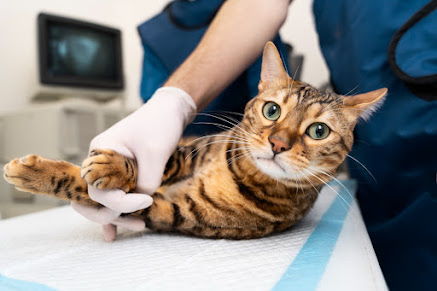What areThe Signs and Symptoms of Cat Cancer?
Cancer is a devastating disease that affects not only humans but also our beloved feline companions. Just like humans, cats can develop various types of cancer, which can significantly impact their quality of life. In this article, we will delve into the world of feline cancer, discussing its causes, symptoms, diagnosis, and treatment options. By raising awareness about this disease, we can better recognize the signs and provide timely intervention, improving the chances of successful treatment and improved outcomes for our feline friends.
Types of Cat Cancer:
Cancer in cats can manifest in different forms, affecting various organs and tissues. Some common types of feline cancer include:
Lymphoma: Lymphoma is one of the most prevalent cancers in cats. It affects the lymphatic system and can occur in different organs, including the lymph nodes, gastrointestinal tract, liver, spleen, and bone marrow.
Mammary Cancer: Primarily affecting unspayed female cats, mammary cancer is characterized by tumors in the mammary glands. The risk of developing this type of cancer increases with age.
Squamous Cell Carcinoma: This type of cancer typically affects the skin, particularly areas exposed to sunlight, such as the ears and nose. Squamous cell carcinoma can also occur in the mouth or other mucous membranes.
Fibrosarcoma: Fibrosarcoma is a malignant tumor that develops from fibrous connective tissues. It often arises at the site of previous injections, such as vaccines or medications.
Causes and Risk Factors:
While the exact causes of feline cancer remain largely unknown, certain factors may increase a cat's risk of developing the disease:
Age: Cancer is more commonly observed in older cats, although it can occur at any age.
Environmental Factors: Exposure to environmental pollutants, second-hand smoke, and certain chemicals may contribute to the development of cancer in cats.
Genetics: Certain cat breeds, such as Siamese and Persian cats, are more prone to specific types of cancer, suggesting a genetic predisposition.
Viruses: Some viral infections, such as feline leukemia virus (FeLV) and feline immunodeficiency virus (FIV), have been linked to an increased risk of certain types of cancer, particularly lymphoma.
Symptoms and Diagnosis:
Detecting cancer in cats can be challenging as they are adept at masking their symptoms. However, some common signs that may indicate the presence of cancer include:
Unexplained weight loss
Loss of appetite
Lethargy or decreased activity
Abnormal swellings or lumps
Changes in behavior or temperament
Difficulty eating or swallowing
Persistent coughing or breathing difficulties
Changes in bathroom habits
If you notice any of these symptoms, it is crucial to consult a veterinarian promptly. The vet will perform a thorough physical examination and may recommend additional tests, such as blood work, imaging (X-rays, ultrasound), or biopsies to confirm a cancer diagnosis.
Treatment Options:
The treatment approach for feline cancer depends on various factors, including the type and stage of cancer, as well as the overall health and age of the cat. Treatment options may include:
Surgery: Surgical removal of cancerous tumors is often the primary treatment for localized cancers. The goal is to remove the tumor and any affected nearby tissues to prevent further spread.
Chemotherapy: Chemotherapy drugs can be administered to cats to destroy cancer cells and slow down tumor growth. While chemotherapy can cause side effects, they are generally better tolerated in cats compared to humans.
Radiation Therapy: Radiation therapy involves the use of high-energy radiation to target and kill cancer cells. It is often used in combination with surgery or as a palliative treatment to relieve symptoms and improve the quality of life.
Immunotherapy: Immunotherapy aims to stimulate the cat's immune system to recognize and attack cancer cells. It can be an effective treatment option for certain types of cancers.
Palliative Care: In cases where the cancer is advanced and cannot be cured, palliative care focuses on managing pain and improving the cat's quality of life through pain medications and supportive therapies.
Conclusion:
Cancer is a challenging and complex disease that can affect our feline companions. Understanding the causes, symptoms, and treatment options for cat cancer is vital in providing the best possible care and improving outcomes for our beloved pets. Regular veterinary check-ups, early detection, and prompt intervention are essential for increasing the chances of successful treatment. By staying vigilant and informed, we can continue to support our furry friends in their battle against cancer and provide them with the love and care they deserve






